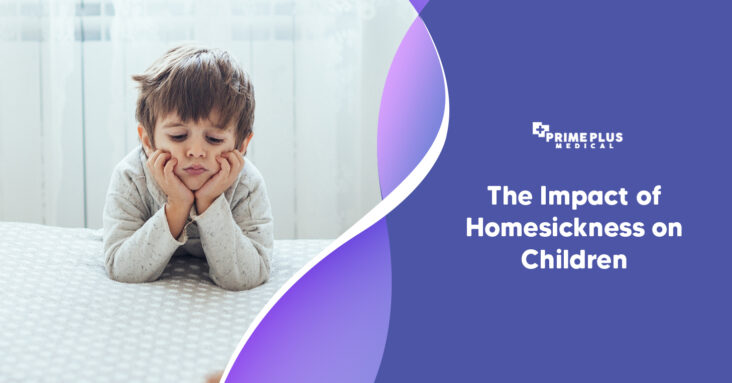Homesickness is a common and natural emotional response, especially in children who are away from home for extended periods, such as at summer camps, boarding schools, or during family vacations. Naturally, family relocations can be even more challenging. And yes, that includes relocations to places as exciting as beautiful Bali.
Besides the obvious wish to be back in a familiar place surrounded by people they know, the signs of homesickness, especially in children, are not always entirely apparent.
Furthermore, according to AboutKidsHealth (Canada), younger children and children who have never been away from home are the most prone to homesickness.
Understanding the signs, symptoms, and effective treatments for homesickness is crucial to helping children cope with this emotional challenge, especially when they struggle to express their feelings.
The following are all the basics every parent must know about homesickness in children.
Signs and symptoms of homesickness in children
- Emotional distress
Homesick children may experience intense feelings of anxiety and loneliness. According to AboutKidsHealth (Canada), many homesick kids may express their emotional distress by crying without apparent reason. Other common emotions in homesick children include anger, irritability, and sadness.
- Physical symptoms
According to an article published in Psychology Today, although homesickness is psychological, it can have some physical manifestations, including appetite loss and stomach aches. Furthermore, some homesick children also experience headaches, nausea, and fatigue.
Difficulty sleeping
Trouble falling asleep or frequent waking during the night is a common symptom of homesickness.
Withdrawal
Homesick children may become socially withdrawn, avoiding interactions and participating in activities they typically enjoy.
Clinginess
Homesick children may become overly clingy, seeking constant reassurance and attention from adults.
Understanding the causes of homesickness
Homesickness in children can be triggered by various factors, including:
- Separation from loved ones
Being away from family and familiar surroundings is often the primary cause of homesickness in children.
- Unfamiliar Environments
New or unfamiliar settings can make children feel uncomfortable and out of their element.
- Lack of Control
Children may feel like they have little control over their surroundings or activities when away from home.
read more article: Understanding the Baby Blues — Taking Care of a Mother’s Mental Health After Childbirth
Treatment and coping strategies
- Communication
Encourage open and honest communication with your child. Let them know it’s okay to feel homesick and that many children experience it. Make sure that they feel comfortable telling you how they feel.
- Preparation
Before the setting change happens, talk to your child about what to expect and engage them in decision-making. If it is possible, familiarize them with the new environment.
For example, if your family is planning to move to Bali, a vacation to the island before relocation can be an excellent opportunity to introduce your children to the new environment and all the fun stuff it offers!
- Stay connected
Arrange for regular contact with family members or friends back home through phone calls, video chats, etc. Assure your child that they are still connected with the life they are familiar with.
- Positive encouragement
Praise your child’s efforts to adapt to their new environment and offer encouragement for their achievements, no matter how small.
- Engagement
Encourage your child to participate in activities and make new friends. Involvement in the community can help reduce homesickness. If language is an issue, put in the extra effort to set up playdates with children who speak your language.
- Professional help
If homesickness persists and significantly impacts your child’s well-being, consider seeking the assistance of a mental health professional who specializes in working with children and adolescents.
If you believe your child might be experiencing persisting homesickness or physical symptoms related to homesickness, please consult a professional as soon as possible. Our English-speaking team of excellent doctors at Prime Plus Medical in Canggu is ready to assist you 24/7.

